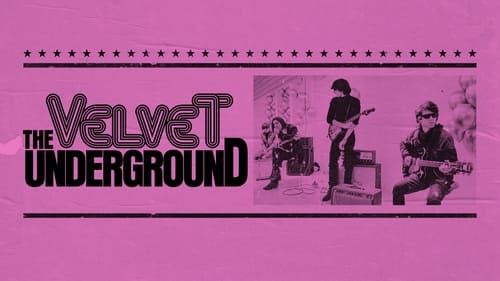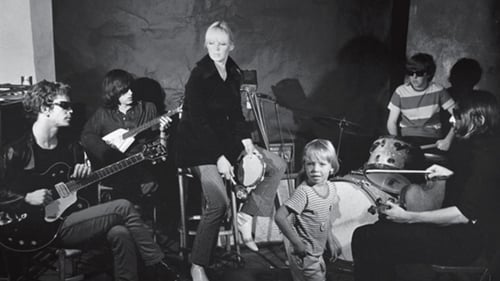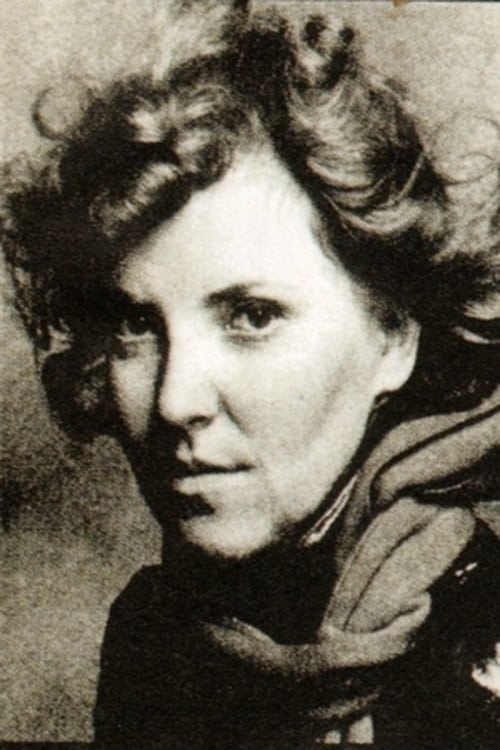Maureen Tucker
Birth : 1944-08-26, Jackson Heights, Queens, New York City, New York, USA
History
Maureen Ann "Moe" Tucker is an American musician and singer best known for having been the drummer for the New York City-based rock band the Velvet Underground.

Self
Experience the iconic rock band's legacy in the first major documentary to tell their story. Directed with the era’s avant-garde spirit by Todd Haynes, this kaleidoscopic oral history combines exclusive interviews with dazzling archival footage.

Herself
Follows John Cale, a Welsh musician and producer, who founded the legendary 60s and 70s NY rock band - the Velvet Underground, with Lou Reed. Cale delved into other mainstream and experimental music genres as well.

Self
Spotlights the Velvet Underground's 1993 reunion tour of Europe, interspersing footage of the band's Paris concert and interviews with the members of the group. Concerts in Prague and Berlin included.

Seminal experimental rock band The Velvet Underground, who initially disbanded in 1970, perform a set at L'Olympia in Paris, France in June 1993, during their brief reunion tour. The set features original founding members Lou Reed, John Cale, Sterling Morrison and Maureen Tucker performing 15 songs, including a new, previously unreleased track, "Coyote."

Herself
A documentary covering the rise of extremely alternative band Half Japanese: from the early days when Jad and David Fair recorded loud music in their bedroom for distribution via mail order cassette tape, to their contemporary incarnation after David's departure for married life and Jad's increased stature among musicians and critics. Includes interviews with Jad, David, Mo Tucker of Velvet underground fame, and Penn Jillette, who produced an album of theirs.

Self
Classic Album Expanded as a 6-Disc Set w/ Stereo, Mono and Surround Mixes, Rarities, & Live Recordings including Unreleased 1970 Club Performance!

This newly unearthed film, which Warhol shot during a concert at the Boston Tea Party, features a variety of filmmaking techniques. Sudden in-and-out zooms, sweeping panning shots, in-camera edits that create single frame images and bursts of light like paparazzi flash bulbs going off mirror the kinesthetic experience of the Exploding Plastic Inevitable, with its strobe lights, whip dancers, colorful slide shows, multi-screen projections, liberal use of amphetamines, and overpowering sound. It is a significant find indeed for fans of the Velvets, being one of only two known films with synchronous sound of the band performing live, and this the only one in color.

Herself
Exploding Plastic Inevitable was a series of multimedia events organised by Andy Warhol between 1966 and 1967, featuring musical performances by The Velvet Underground and Nico, screenings of Warhol's films, and dancing and performances by regulars of Warhol's Factory. It is also the title of a 18-minute film by Ronald Nameth filmed during one week of the show in Chicago, Illinois in 1966.

Herself
Documents each member of The Velvet Underground having their cards read at a big apartment party. The tarot reader is continually interrupted in her readings by the chaos created by the characters around her.

Or "Moe in Bondage" - The "Moe" of the title is the Velvet Underground's drummer, Maureen Tucker, whose band-mates have tied her to a chair and are now hanging around nibbling on sandwiches and pieces of fruit.

Herself
The film depicts a rehearsal of The Velvet Underground including Nico, and is essentially one long loose improvisation.

The Velvet Underground's first public appearance, filmed in Super 8 at a Psychiatrist's Convention, at the Delmonico Hotel, New York, January 14, 1966. Andy Warhol was invited to speak at the annual banquet of the New York Society for Clinical Psychiatry. He brought along the Velvets and other factory regulars.

Self
The films were made between 1964 and 1966 at Warhol's Factory studio in New York City. Subjects were captured in stark relief by a strong key light, and filmed by Warhol with his stationary 16mm Bolex camera on silent, black and white, 100-foot rolls of film at 24 frames per second. The resulting two-and-a-half-minute film reels were then screened in 'slow motion' at 16 frames per second.



